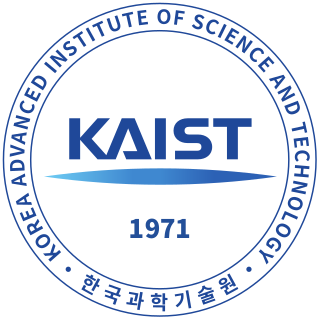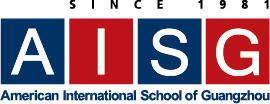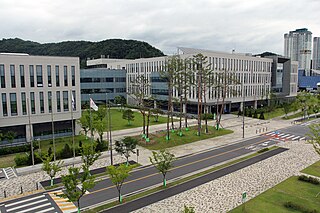Related Research Articles

The Korea Advanced Institute of Science and Technology (KAIST) is a national research university located in Daedeok Innopolis, Daejeon, South Korea. KAIST was established by the Korean government in 1971 as the nation's first public, research-oriented science and engineering institution. KAIST is considered to be one of the most prestigious universities in the nation. KAIST has been internationally accredited in business education, and hosting the Secretariat of the Association of Asia-Pacific Business Schools (AAPBS). KAIST has 10,504 full-time students and 1,342 faculty researchers and had a total budget of US$765 million in 2013, of which US$459 million was from research contracts.

Daejeon is South Korea's fifth-largest metropolis, with a population of 1.5 million as of 2019. Located in the central region of South Korea alongside forested hills and the Geum River, the city is known both for its technology and research institutions, and for celebrating its natural environment, with most mountains, hot springs, and rivers freely open for public use. Daejeon serves as a hub of transportation for major rail and road routes, and is approximately 50 minutes from the capital, Seoul, by KTX or SRT high speed rail.

Kodaikanal International School (KIS) is a co-educational independent residential school offering education for grades P-12. It is located on 43 acres (0.17 km2) in Kodaikanal, Dindigul, Tamil Nadu, India. Kodaikanal is a hill station at 2,133 m (6,998 ft) in the Palani Hills, 121 kilometres (75 mi) northwest of Madurai.

Education in North Korea is universal and state-funded schooling by the government. The self-reported national literacy rate for citizens at age of 15 and older is 100 percent (approx.). Children go through one year of kindergarten, four years of primary education, six years of secondary education, and then on to university.
An international school is an institution that promotes education in an international environment or framework. Although there is no uniform definition or criteria, international schools are usually characterized by a multinational student body and staff, multilingual instruction, curricula oriented towards global perspectives and subjects, and the promotion of concepts such as world citizenship, pluralism, and intercultural understanding. Many international schools adopt a curriculum from programs and organizations such as International Baccalaureate, Edexcel, Cambridge Assessment International Education, International Primary Curriculum, or Advanced Placement.

The American International School of Guangzhou is an independent, non-profit, multicultural, and co-educational day school for foreign children from preschool to grade 12. It is located in Guangzhou, Guangdong, China, with an Elementary School campus on Ersha Island, Yuexiu District and a Secondary School campus in Science Park, Huangpu District. Founded in 1981, it is the oldest international school in South China. AISG offers an international curriculum guided by American educational standards and principles.

United World College East Africa (UWCEA) is an independent international school in Tanzania, and a member of the United World Colleges movement. Established in 1969 as International School Moshi, the school is based on two campuses on the slopes of Mount Kilimanjaro and Mount Meru near the city of Moshi, the capital of the Kilimanjaro region in north eastern Tanzania.

Information and Communications University (ICU), established in 1998, was a Korean university focused primarily on research and engineering in the field of information technology. It was located in the city of Daejeon and comprised an engineering school and a management school. As of 2006, about 20% of the enrolled graduate students were international students. Unlike other Korean universities, almost all courses were taught in English.
Seoul Foreign School is a Pre-K/Reception to Grade 12 international school located in Seoul, South Korea. The school was founded in 1912 by Christian missionaries to Korea and emphasizes Christian values. The Elementary, Middle and High Schools offer an international curriculum within the International Baccalaureate framework of PYP, MYP and DP. The High School offers the IB Diploma Programme. The British School offers the English National Curriculum - Key Stages 1–3. Seoul Foreign School has been located in Yeonhui-dong, Seodaemun-gu since 1959.

Woosong University, is a 4-year university, located in Daejeon, South Korea providing a specialized curriculum based on foreign-language and IT education for every major field of study.

Korea Science Academy of KAIST is a science magnet school, located in Busan, South Korea. It was founded in 1991 as Busan (Pusan) Science High School (BSA). In 2001, BSA was designated as a school for science gifted students in 2001 by the Ministry of Science and Technology. The name was changed to the Korea Science Academy (KSA) in 2005. In 2009 the school announced formal ties with KAIST.

Soongsil University (SSU) is the first modern university in Korea, dating its history back to 1897. It was founded under the Christian missionary William M. Baird. The campus is located in 369 Sangdo-ro, Dongjak-gu, Seoul, South Korea.

Tashkent International School (TIS), an International Baccalaureate (IB) World School, is an independent, non-profit, coeducational day school from preschool through grade 12 located in Tashkent, the capital city of Uzbekistan in Central Asia. TIS was founded in 1994 to provide quality education in English for children of the diplomatic corps, international corporations and local families.

Beijing City International School (BCIS) is an independent co-educational not-for-profit day school offering an international curriculum for toddler to twelfth grade students.

St Andrews International School Bangkok is a British International School founded in 1997 that provides a British-style education and curriculum to children ranging from Foundation Stage 1 to High School. St Andrews is a Nord Anglia Education operated school and part of a network of 78 schools that spans across 31 countries. St Andrews has over 2000 students representing an international community of 50+ nationalities. St Andrews is an inclusive school that welcomes students of all abilities to be ambitious and learn in a diverse and safe environment.

The Pyongyang Korean School for Foreigners (Korean: 평양외국인학교) is a primary school in Pyongyang, Democratic People's Republic of Korea (DPRK), a.k.a. North Korea, exclusively for foreign children. It has also a facility for foreign children studying on secondary school level. The school is located at the Munsudong diplomatic compound in Pyongyang, the capital of the DPRK. The children who attend are mainly dependents of the diplomatic community and the United Nations agencies in the country, although also children of foreign businessmen, mainly Chinese, have been joining the school. All teachers are Korean. The language of instruction is English. Local textbooks in English are used. English and mathematics are the two major subjects, with Korean language, music, art and physical education as minor subjects; from class 3 onwards also science is provided as minor subject. In the early 1990s the official name in English of the school was "Pyongyang Foreigners School", which is the straight translation of the name of the school in Korean (평양외국인학교), which did not change.
Soongsil University College of Law is part of Soongsil University (SSU), a private Christian university in South Korea. The campus is located in 511 Sangdo-dong, Dongjak-gu, Seoul.

Eunjoon Kim is a professor of KAIST and director of Center for Synaptic Brain Dysfunctions within the Institute for Basic Science (IBS). With over 150 publications to his name, his research has been cited over 16,000 times giving him an h-index of 61 and i10-index of 121. He graduated from Busan National University in 1986, received master's degree at KAIST in 1988, received PhD degree at Michigan State University in 1994, and worked at Harvard Medical School as a postdoctoral fellow during 1995-1996. His current research focuses on molecular organization of neuronal synapses and synapse dysfunction-related psychiatric disorders.

The Institute for Basic Science is a Korean government-funded research institute that conducts basic science research and relevant pure basic research. IBS was established in November 2011 by the Lee Myung-bak administration as a research institute, later be a core of the International Science and Business Belt (ISBB) upon relocation of their headquarters from a rented property to their own campus in January 2018 using land reclaimed from the Taejŏn Expo '93 in Expo Science Park. Comprising 30 research centers with 68 research groups across the nation and a headquarters in Daejeon, IBS has approximately 1,800 researchers and doctoral course students. Around 30% of the researchers are from countries outside of South Korea. The organization is under the Ministry of Science and ICT.

Cha Meeyoung, sometimes known as Mia, is an associate professor at KAIST in the School of Computing and a chief investigator in the Pioneer Research Center for Mathematical and Computational Sciences at the Institute for Basic Science. Her research focuses on network and data science with an emphasis on modeling, analyzing complex information propagation processes, machine learning-based computational social science, and deep learning. She has served on the editorial boards of the journals PeerJ and ACM Transactions on Social Computing.
References
- ↑ "Korea Herald". 2017-03-30.
- ↑ "International School". Living in Daejeon. Retrieved 2021-02-22.
- ↑ "Directory of Schools".
- ↑ "IB Schools - Taejon Christian International School" . Retrieved 2021-02-22.
- ↑ "IB Schools In South Korea" . Retrieved 2021-02-22.
- ↑ "IB leaders visit South Korea to kick off partnership - The International Baccalaureate News" . Retrieved 13 December 2019.
- ↑ "The Forgotten American Missionaries of Pyongyang - Kim, Robert". 2017-04-25.
- ↑ Driscoll, Kristen (2007-07-24). "Ruth Bell Graham: A Life Well Lived".
- ↑ Somerville, Virginia Bell (1997). "Pyongyang Foreign School" (PDF). Views and Visions.
- ↑ Shin, Yu-Jin (2012-09-12). "대전외국인학교[TCIS], 새 캠퍼스 완공". Daejeon City News (in Korean).
- ↑ "Korea Herald". 2017-03-30.
- ↑ "Korea Herald". 2017-03-30.
- ↑ Lee, Seung Woo (2011-06-30). "KAIST-대전국제학교, 교육협력 MOU 체결 (KAIST-TCIS Sign MOU for Educational Cooperation)". Korea Business News Agency - NSP통신 (in Korean).
- ↑ Park, Ji-sun (2013-04-22). "IBS-대전외국인학교 MOU..."해외과학자 유치" (IBS-TCIS MOU... "Attracting foreign scientists")" (in Korean).
- ↑ Lee, Jooyoung (2016-08-24). "Daejeon Board of Education-TCIS Exchange Educational Agreement". Yeonhap News (in Korean).
- ↑ Choi, Moongap (2021-12-01). "IB(국제교육) 이해와 응용, 정말 유익해요". Kuki News (in Korean).
- ↑ "Christian Worldview". Taejon Christian International School. Retrieved 2021-02-22.
- ↑ Ornauer, Dave (2009-07-13). "Former TCIS student, rising star on the LPGA links". Stars and Stripes.
- ↑ "USC 2008-09 Women's Golf Roster". University of Southern California Trojans. Retrieved 2021-02-25.
- ↑ "LPGA: Jennifer Song Bio". Ladies Professional Golf Association (LPGA). Retrieved 2021-02-25.
- ↑ Ornauer, Dave (2013-08-30). "TCIS' Bin earns spot with prestigious U.S. soccer academy". Stars and Stripes.
- ↑ "UM Terrapins 2020 Men's Soccer Roster". University of Maryland Terrapins (UM Terps). Retrieved 2021-02-25.
- ↑ Lee, Edward (2018-12-06). "Offense for Maryland men's soccer fueled by friendship between 'polar opposites' Amar Sejdic, Paul Bin". The Baltimore Sun.
- ↑ Choi, Moongap (2022-02-18). "대전외국인학교 학생, '삼성휴먼테크 논문대상' 금상 수상". Kuki News (Korea). Retrieved 2022-02-18.